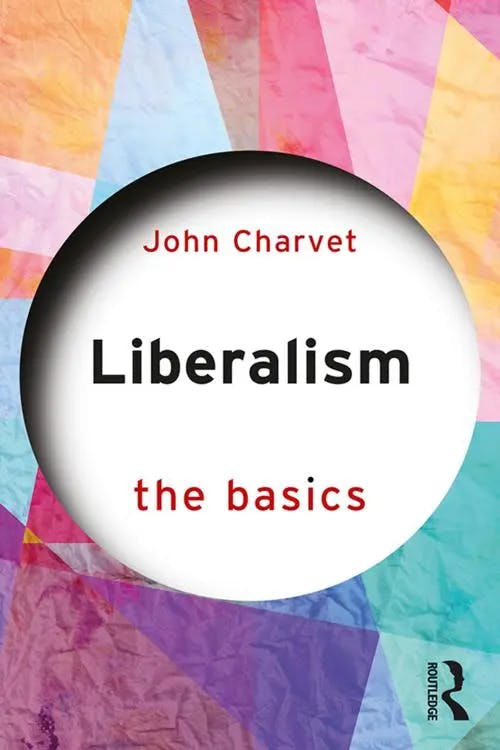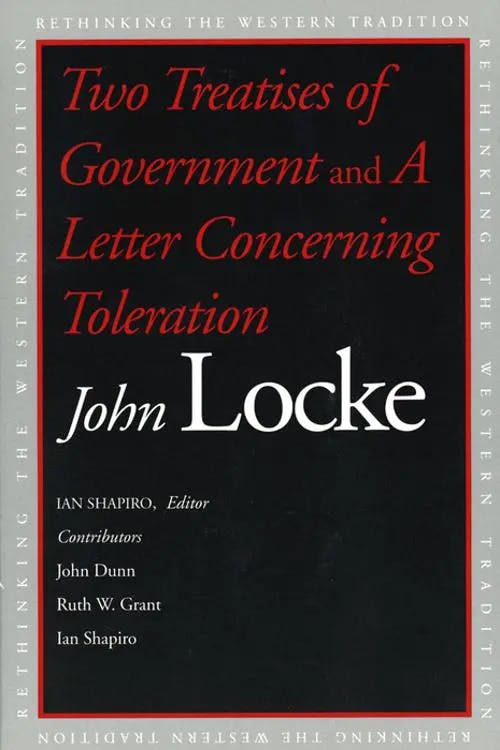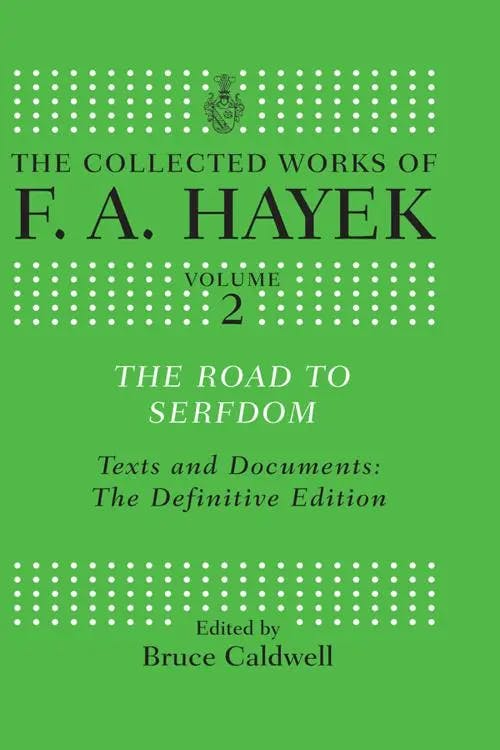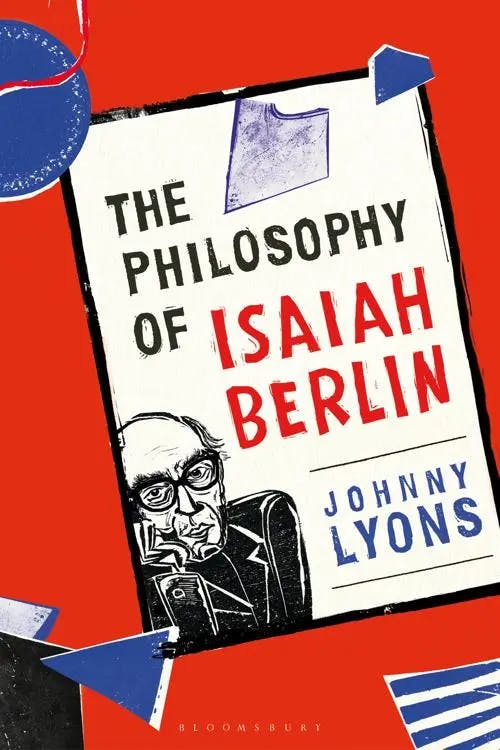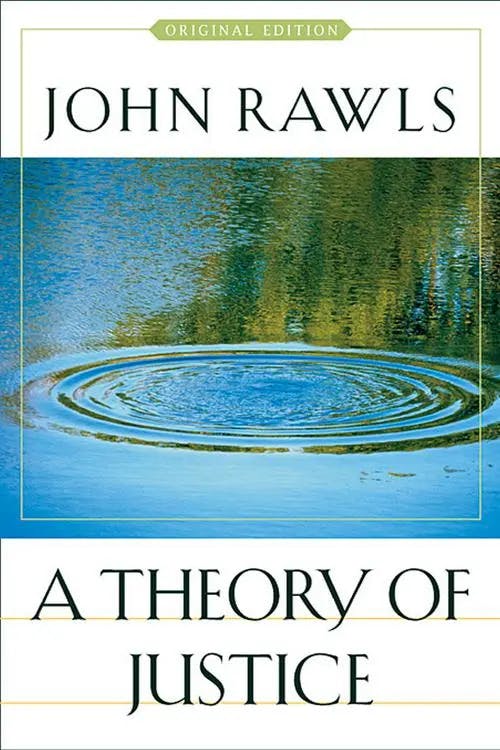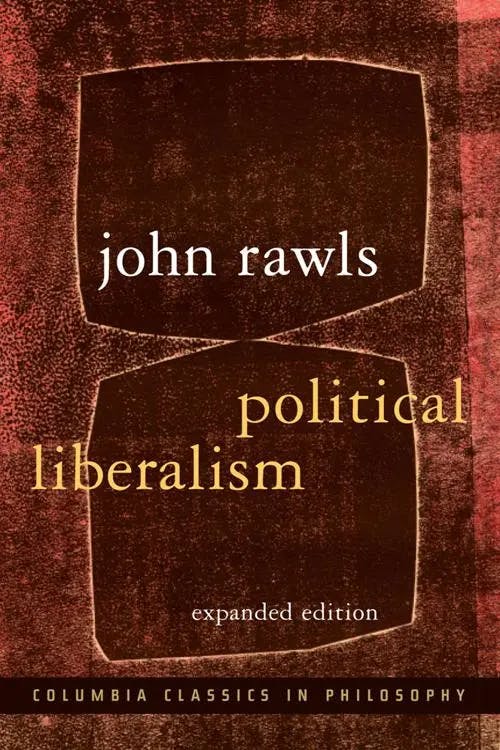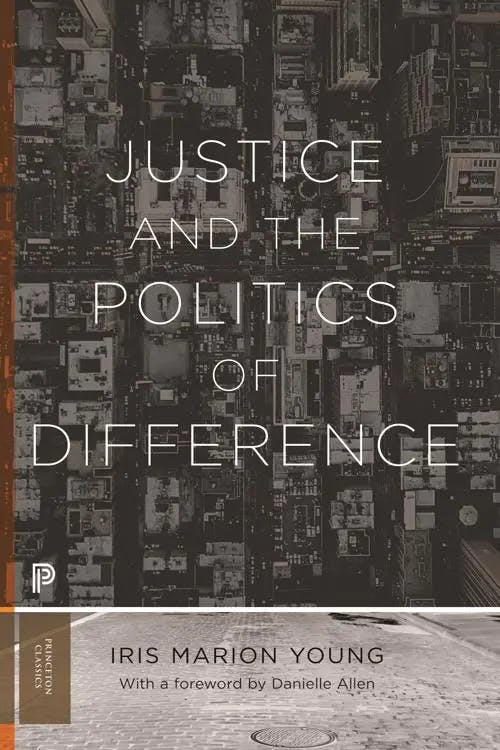What is Liberalism?
MA, Philosophy (University of Cambridge)
Date Published: 10.08.2023,
Last Updated: 10.08.2023
Share this article
Liberalism: a quick definition
There’s no easy way to define liberalism. It’s an incredibly broad position; one which has evolved throughout history. But unsurprisingly, liberty lies at the heart of liberalism. At their core, liberal theories focus on promoting freedom for the individual.
In Liberalism (2018), John Charvet identifies a non-exhaustive list of “liberal practices” which are often present in liberal societies:
free speech or freedom of expression, freedom of association, free movement, economic freedom, sexual freedom. (2018)
John Charvet
free speech or freedom of expression, freedom of association, free movement, economic freedom, sexual freedom. (2018)
To give an example of one of these practices: in liberal societies such as the United States, there is rule of law. Rule of law means that the law is transparent and applies to every single person, including political leaders and legislators. If the President breaks the law while in office, they can be arrested just like a citizen. This helps to ensure that the law is not arbitrarily enforced on anyone, which would come with a significant risk of curtailing citizens’ freedoms. In illiberal societies, it’s often the case that laws do not apply to those in power.
This guide will focus on what is known as ‘“new liberalism”, — in particular, the liberalism of John Rawls, whose work has often been regarded as integral in reviving philosophical interest in the concept of liberalism. Before moving onto Rawls’ theory, the guide will briefly introduce the history of liberalism, and discuss some meanings of liberty.
Key moments in the history of liberalism
Although liberal thought predates his work, John Locke’s writing is often cited as a starting point in European liberalism. Locke argued that we each have a natural right to life, liberty, and property. He states,
Every one [...] ought he, as much as he can, to preserve the rest of mankind, and may not, unless it be to do justice to an offender, take away or impair the life, or what tends to the preservation of life, the liberty, health, limb, or goods of another. (1689, [2008])
John Locke (Edited by Ian Shapiro)
Every one [...] ought he, as much as he can, to preserve the rest of mankind, and may not, unless it be to do justice to an offender, take away or impair the life, or what tends to the preservation of life, the liberty, health, limb, or goods of another. (1689, [2008])
In other words, we must not impede upon the liberty, life, or property of others — and to ensure that our rights are protected, it’s inevitable (and required) that they become enshrined in laws to which we all, at least tacitly, consent.
If we jump ahead, we land at classical liberalism, which gained traction in the 18th and 19th centuries. It places an emphasis on the importance of private property for securing individual freedom, and is suspicious of government intervention. As Friedrich Hayek argued:
The system of private property is the most important guarantee of freedom, not only for those who own property, but scarcely less for those who do not. (1944, [2014])
F. A. Hayek
The system of private property is the most important guarantee of freedom, not only for those who own property, but scarcely less for those who do not. (1944, [2014])
Essentially, Hayek, an influential reviver of classical liberal thought, believed that economic intervention — including redistributive measures which might infringe on people’s private property — unjustly infringes on individual freedoms.
Moving into the present day, we arrive at “new liberalism” (not to be confused with neoliberalism), which became popular in the 20th century. The ideas of J.S. Mill were influential in its development; though Mill held that private property could be helpful for freedom, he argued that the justifications for personal and economic liberty are distinct (On Liberty, 1859, [2011]).
New liberalism is sometimes also referred to as “welfare liberalism”, as it places an emphasis on the importance of social justice and equality in a truly liberal society.
The meaning of liberty
Above, I’ve mentioned that freedom for the individual is at the core of liberalism.
But how should freedom (or liberty) itself be understood? Debates about the meaning of freedom are extensive, and it’s worth having an understanding of some of the key thoughts on how to define liberty.
In his famous essay “Two Concepts of Liberty” ( Four Essays on Liberty, [1958],1969), Isaiah Berlin made a distinction between negative and positive liberty, which is a helpful starting point.
Negative freedom requires the absence of external constraints imposed by other people, including the state. For example, if someone is locked in a room, they lack negative freedom to leave it. Laws also limit negative freedom: they are a form of external coercion which limit the range of actions we could take with impunity.
Conversely, positive freedom refers to what you actually can do, rather than the things you are merely physically able to do due to absence of external obstacle. This means that internal restrictions can be factors which can diminish positive freedom — for example, an addiction which impacts your ability to choose whether or not to take a drug.
To illustrate the idea of positive versus negative freedom better, consider a scenario where there is a person inside an unlocked room, outside which sits a golden retriever. The person has a debilitating phobia of dogs, and they know that there’s a dog outside the door. On the negative conception of freedom, they are free to leave their room, as there are no restrictions imposed by other people stopping them. However, if we consider the positive view of freedom, we might say they are not free to leave, due to the internal restriction of their severe phobia.
Berlin’s work also refers to the Kantian notion of the “higher” and “lower” self. For Kant, we act freely only when our actions are the result of reason, which leads us to act in accordance with universal principles that any reasonable person would endorse. We lack freedom when we act solely as a result of our emotions or desires. Therefore, we act freely when we’re ruled by this higher, purely rational self.
However, Berlin has argued that positive liberty is vulnerable to exploitation by totalitarian regimes. As Lyons summarises,
Berlin argues that […] history has shown how tragically brief the leap can be from a desire for self-realization to the sense of having discovered a real or rational self and ending in the embrace of oppressive forms of despotism. (2020)
Johnny Lyons
Berlin argues that […] history has shown how tragically brief the leap can be from a desire for self-realization to the sense of having discovered a real or rational self and ending in the embrace of oppressive forms of despotism. (2020)
Berlin’s worry was that positive liberty was liable to be used by authoritarian regimes and doctrines as a justification for in fact restricting freedom: the leader of an authoritarian regime could try to justify restrictions on freedom by arguing that the regime provides the framework for the kind of way of life which a truly rational citizen would support.
Since Berlin, philosophers have been working on new or amended definitions of freedom. For example, Gerald MacCallum argues that freedom always consists in both freedom from (negative) and freedom to (positive). He proposed that there is only one concept of freedom, and that it can be captured by the following schema:
x is (is not) free from y to do (not do, become, not become) z.
(“Negative and Positive Freedom,” 1967)
As an example: someone may be free from external obstacles to leave their house. They are both free from restriction (their front door can be unlocked, it isn’t blocked by rocks, etc), and are also able to leave — they are not afraid of going outside, and they are physically able, and in good enough health, to leave the house.
All in all, freedom is a complex concept. Nonetheless, the heart of liberalism aims to promote individual freedoms — and deciding how best to define freedom is, really, another debate entirely.
Rawls’ new liberalism
Rawls’ famous liberal theory was largely developed in his works A Theory of Justice (1971) and Political Liberalism (1993). Rawls’ theory is useful in helping us understand liberalism in general, as it’s a key example of the progress from classical liberalism’s focus on property rights and minimal government, to a more contemporary emphasis on the interplay between equality and freedom.
A Theory of Justice
In A Theory of Justice, Rawls outlines the foundational principles that he claims should underpin a liberal and just society. Rawls argues that the securing of individual liberties in a just and liberal society, is “lexically prior” (1971, [2005]) to other demands on that society: this means that in such a society, freedom must be secured before other principles.
As we’d expect from a liberal theory, Rawls is concerned with ensuring individual liberties - but crucially, Rawls’ theory ensures that citizens have the level of equality required to take advantage of their “basic liberties” (Rawls, 1971, [2005]) through his theory of justice as fairness.
Rawls lists the “basic liberties” as follows:
"Political liberty (the right to vote and to be eligible for public office) together with freedom of speech and assembly; liberty of conscience and freedom of thought; freedom of the person along with the right to hold (personal) property; and freedom from arbitrary arrest and seizure as defined by the concept of the rule of law. (1971, [2005])
John Rawls
"Political liberty (the right to vote and to be eligible for public office) together with freedom of speech and assembly; liberty of conscience and freedom of thought; freedom of the person along with the right to hold (personal) property; and freedom from arbitrary arrest and seizure as defined by the concept of the rule of law. (1971, [2005])
He further outlines two key principles of justice required in a liberal society:
First: each person is to have an equal right to the most extensive basic liberty compatible with a similar liberty for others.
Second: social and economic inequalities are to be arranged so that they are both (a) reasonably expected to be to everyone’s advantage, and (b) attached to positions and offices open to all. (Rawls, 1971, [2005])
As stated above, Rawls’ stipulates that the first principle is lexically prior to the second: it must be satisfied before the second can be attended to.
Rawls arrives at these two principles by proposing an ideal impartial starting point which he labels “the original position” (1971, [2005]). Here, representatives of citizens decide from behind a “veil of ignorance” on the principles of justice that will underpin their society in the form of a social contract (1971, [2005]). The veil of ignorance prevents these representatives from knowing what their social status, gender, religion, or personal philosophy will be in this hypothetical society.
The idea, here, is that a liberal society must be grounded on principles which any reasonable person could endorse — and so without access to these morally arbitrary facts about themselves, representatives will choose principles which Rawls describes as entirely “freestanding”(1993, [2005]). Freestanding principles are those separated from comprehensive doctrines and stemming from the “public political culture” rather than any controversial comprehensive doctrine about which we could reasonably disagree (Rawls, 1993, [2005]).
To understand why this is crucial for a liberal society, in Rawls’ eyes, we need to turn to his second work.
Political Liberalism
The link between Political Liberalism and A Theory of Justice can be a little confusing, as Political Liberalism is often regarded as in some ways an alteration of Rawls’ original theory. However, it’s useful to look at Political Liberalism through the lens of two key questions which Rawls asks — questions which Samuel Freedom describes as problems of “legitimacy” and of “stability” (Freeman, 2007).
The legitimacy problem: given that we do all hold such disparate worldviews, how can it be legitimate for a government to coerce its citizens into following one law?
As an example, imagine there’s a group of ten people who all need to climb a mountain together. But each member of the group has a different idea about how best to climb the mountain; the kit required, the safety precautions, and the best route to take — and the rules of this scenario require that they must all have the same kit, take the same route, and have the same provisions.
Let’s say that, in the end, they’re required to take a vote on all of these different factors and that the result of their vote becomes binding. If they each truly believe that their way is the best, the safest, the most correct way (and let’s suppose that there’s no way of knowing who is, in fact, objectively correct about the “best” way of scaling the mountain) — how could they ensure that the binding quality of the vote be legitimately enforced?
The stability problem: this problem, is, essentially, the question of why anyone would obey a law imposed on them by a government that are representatives of such diverse worldviews. If citizens aren’t willing to obey the law, a government won’t stay stable for long.
It’s important to remember here that these are really important questions when it comes to securing liberty — a key part of any liberal theory. Given that we all have such disparate worldviews, we all probably have a certain way we’d like to live. But at the same time, some ways of living might conflict with others.
Take the idea of multiculturalism: in most contemporary societies, people with very diverse religious and cultural backgrounds live alongside one another. A liberal society must ensure that society is set up in such a way that we can all pursue our own lives and interests to the maximum degree, without impeding on anyone else.
Rawls’ solutions
Before jumping into Rawls’ solutions, an important thing to note is Rawls’ understanding of what it means to be a “reasonable citizen.” Rawls holds that every citizen holds their own comprehensive doctrine, a set of beliefs including moral and philosophical concepts (Rawls, 1993, [2005]). However, as reasonable people, we are not willing to impose these doctrines on others. We accept the “burdens of judgement” — the idea that deep issues such as religion, philosophy, morality, are very complex, and that we’re all liable to disagree about them. (Rawls, 1993, [2005]).
Solution to the legitimacy problem
Rawls argues that the exercise of political power is legitimate only under the following conditions:
When it is exercised in accordance with a constitution the essentials of which all citizens as free and equal may reasonably be expected to endorse in the light of principles and ideals acceptable to their common human nature. (Rawls, 1993, [2005])
John Rawls
When it is exercised in accordance with a constitution the essentials of which all citizens as free and equal may reasonably be expected to endorse in the light of principles and ideals acceptable to their common human nature. (Rawls, 1993, [2005])
This means that political power must be used in ways that all humans can be reasonably expected to endorse. Returning to the mountaineering example, the principles at play in deciding how to tackle the mountain should be principles that any reasonable person could accept (such as prioritising safety). This is something that their own comprehensive doctrines will almost certainly account for, too.
Crucially, comprehensive doctrines can’t form the basis of coercive power because we could in theory disagree, and because we know, as reasonable people, that we could all disagree: political principles must be “freestanding”.
Solution to the stability problem
We’ve seen how Rawls proposes a liberal government could acquire legitimacy. But what about stability? For this issue, Rawls turns to his idea of overlapping consensus.
Citizens all endorse a core set of laws, argues Rawls, for different reasons, which are internal to their own comprehensive doctrines. (Rawls, 1993, [2005]) That the laws can be endorsed from within these doctrines is important as it means that citizens don’t have to actually suspend their core beliefs in order to understand and support laws. This is known as overlapping consensus.
If we take quite an extreme example:whether you believe murder is wrong because it violates the ten commandments, or you believe murder is wrong because you hold a secular belief that it’s morally wrong to kill somebody, you’ll endorse a law against murder. These are two different reasons for endorsing the law, founded in two different comprehensive doctrines, but they nonetheless do both endorse the law.
Conversely, if a law was, for example, founded solely on a religious doctrine of justice (perhaps the old testament idea of “an eye for an eye”), it would not be a suitable candidate for a principle within a liberal society, as it’s not something which all citizens could endorse from within their individual comprehensive doctrines.
Distinctions within modern liberalism
Rawls’ liberalism is, of course, not the only modern liberal theory. It will be useful to consider some of the distinctions between different types of liberal theory. Different philosophers have propounded liberalism in different forms and on different grounds on the basis of these distinctions.
Two of the most crucial distinctions within modern liberalism are the distinctions of comprehensive versus political liberalism, and perfectionist versus anti-perfectionist liberalism.
Comprehensive and political
Comprehensive liberalism: some liberal theories are comprehensive. As Joseph Quong explains in his work Liberalism Without Perfection (2010), a comprehensive liberal theory takes it that liberalism must be based on a “particular conception of the good.” It typicaly relies on a thesis about the intrinsic or inherent value of personal value. For example, Ronald Dworkin grounds his liberalism on a comprehensive theory of equality (Sovereign Virtue, 200).
Political liberalism: political liberalism isn’t based on a particular conception of the good. It is non-comprehensive. This is the kind of liberalism Rawls endorses as he argues that his principles of justice are not grounded in any “comprehensive doctrines”, but rather emerge from an impartial perspective (Rawls, 1993, [2005]).
Perfectionist and anti-perfectionist
Perfectionism: Perfectionist liberal theories argue that the state can justifiably promote certain values. Quong helpfully summarises perfectionism through a thesis:
The Liberal Perfectionist Thesis (LPT): It is at least sometimes permissible for a liberal state to promote or discourage particular activities, ideals, or ways of life on grounds relating to their inherent or intrinsic value, or on the basis of other metaphysical claims. (2010)
For the liberal perfectionist, state action can be justified by appealing to the worth of a certain idea of the good. Joseph Raz, for example, argues that a liberal state should take action to promote autonomy, and that autonomy requires that we are able to pursue valuable goals and projects (Raz, 1986). As such, according to Raz’s view, the state should not remain entirely neutral — instead, it should promote access to ways of certain ways of life which are more rather than less autonomous, perhaps by subsidising institutions like public libraries and museums.
Anti-perfectionism: Anti-perfectionists hold that a liberal state must remain neutral between conceptions of the good. Rawls’ theory, for example, is anti-perfectionist. Since it requires that coercive power must rest on principles with no ties to comprehensive doctrines, the state is not justified in promoting a particular programme of the good.
As Quong points out, theories can be any combination of these four theses (2010). Rawls’ theory is an example of political anti-perfectionism — but a theory could be both comprehensive and anti-perfectionist, political and perfectionist, and so on.
Challenges for liberalism
Illiberal ideas within liberal societies
As we’ve seen, within a society, people will typically hold all kinds of comprehensive doctrines. But what if some of these doctrines involve ideals which seem to promote the restriction of individual freedoms, such as vulnerable group members like sexual minorities or women?
Susan Moller Okin’s famous essay “Is Multiculturalism Bad for Women” focuses on this question:
What should be done when the claims of minority cultures or religions clash with the norm of gender equality that is at least formally endorsed by liberal states? (1999)
The question, essentially, is how should the freedom and rights of such groups be protected, when they seem to threaten the individual liberty of their own members? For instance, in the USA, debates around Amish communities and compulsory education tap into this issue, with Amish children prohibited from attending high school.
Responses to this problem are varied. Some philosophers, such as Chandran Kukathas as in his essay “Exit, Freedom, and Gender”, have written of the importance of a “right to exit” groups, meaning that members should have the right to leave (cited in On Exit, 2012). But this ignores the social and psychological difficulties that may arise when a member tries to leave.
Another philosopher, Anne Phillips, responds to the issue by pointing out that it’s important to avoid “essentializing” cultures, arguing that much liberal debate is guilty of this (Multiculturalism without Culture, 2009).
However, restrictions placed on children are especially tricky to tackle. Philosopher Joel Fineberg argues that children have a right to an “open future”: this is a right which ensures that children don’t have key life choices determined before they have the ability to determine them themselves, as this would limit their future autonomy. (Rights, Justice, and the Bounds of Liberty, 1980, [2014]). So, for instance, if a group requires that a child’s education is curtailed, their future options — such as careers, and lifestyles — may be limited.
Impartiality
Many theories of political liberalism involve a conception of impartiality, or neutrality. But impartiality, as a concept, is subject to extensive debate. Iris Marion Young argues that impartiality is both undesirable, and impossible. Young calls the kind of impartiality that Rawls endorses a “view from nowhere”, and that such a view is a utopian fantasy — not something that is actually within the realms of possibility:
The ideal of impartiality expresses in fact an impossibility, a fiction. No one can adopt a point of view that is completely impersonal and dispassionate, completely separated from any particular context and commitments. (2011)
Iris Marion Young
The ideal of impartiality expresses in fact an impossibility, a fiction. No one can adopt a point of view that is completely impersonal and dispassionate, completely separated from any particular context and commitments. (2011)
Young argues that this kind of impartiality fails to recognise the plurality of individuals, which can problematically exclude certain viewpoints, particularly those viewpoints of individuals and groups which are most at risk of injustice. She argues this for three reasons:
First, it denies the particularity of situations […] Second, in its requirement of dispassion, impartiality seeks to master or eliminate heterogeneity in the form of feeling[…] Third, the most important way that the ideal of impartiality reduces particularity to unity is in reducing the plurality of moral subjects to one subjectivity. (Young, 2011)
Young’s concern is that impartiality can lead to oppression, as it can be blind to structural injustice, given its wilful ignorance of minority voices. So for liberalism to be truly just, perhaps then, it must abandon the notion of neutrality.
Conclusion
Liberalism is a complex political philosophy which has been developed over many centuries. In contemporary debate, ‘new’ liberalism such as the liberalism propounded by John Rawls) aims to reconcile equality with freedom: by ensuring that a base level of equality is guaranteed, a base level of freedom will follow.
Yet within new liberalism, numerous disagreements abound: from whether or not to ground the theory in a comprehensive theory of the good, and whether liberal states are justified in actively promoting a particular conception of the good, it’s an area of political philosophy where much debate continues.
Liberalism FAQs
What is liberalism in simple terms?
What is liberalism in simple terms?
Who are the key thinkers on liberalism?
Who are the key thinkers on liberalism?
What are some key texts on liberalism?
What are some key texts on liberalism?
What is an example of liberalism?
What is an example of liberalism?
Bibliography
Butler, E. (2015) Classical Liberalism—A Primer. 1st edn. London Publishing Partnership. Available at: https://www.perlego.com/book/571209/classical-liberalism-a-primer-pdf
Charvet, J. (2018) Liberalism. 1st edn. Taylor and Francis. Available at: https://www.perlego.com/book/1555473/liberalism-the-basics-pdf
Dworkin, R. (2002). Sovereign Virtue. Harvard University Press. Available at: https://www.perlego.com/book/1812676/sovereign-virtue-the-theory-and-practice-of-equality-pdf
Feinberg, J. (2014) Rights, Justice, and the Bounds of Liberty. Princeton University Press.
Freeman, S. (2007). Rawls (1st ed.). Taylor and Francis.
Available at: https://www.perlego.com/book/1626110/rawls-pdf
Hayek, F. (2014) The Road to Serfdom. 1st edn. Taylor and Francis. Available at: https://www.perlego.com/book/570781/the-road-to-serfdom-pdf
Kukathas, C. (2012) “Exit, Freedom, and Gender”, in Borchers, D. and Vitikainen, A (eds)On Exit.. De Gruyter (2012) Available at: https://www.perlego.com/book/606704/on-exit-pdf
Locke, J. (2008). Two Treatises of Government and A Letter Concerning Toleration (1st ed.). Yale University Press. Available at: https://www.perlego.com/book/1089418/two-treatises-of-government-and-a-letter-concerning-toleration-pdf
Lyons, J. (2020) The Philosophy of Isaiah Berlin. 1st edn. Bloomsbury Publishing. Available at: https://www.perlego.com/book/1357227/the-philosophy-of-isaiah-berlin-pdf
MacCallum, Gerald C. “Negative and Positive Freedom.” The Philosophical Review 76, no. 3 (1967): 312–34. Available at: https://doi.org/10.2307/2183622
Okin, S. M. (1999) Is Multiculturalism Bad for Women? Princeton University Press. Available at: https://www.perlego.com/book/735326/is-multiculturalism-bad-for-women-pdf
Phillips, A. (2009) Multiculturalism without Culture. Princeton University Press. Available at: https://www.perlego.com/book/734475/multiculturalism-without-culture-pdf
Rawls, J. (2005) Political Liberalism. Columbia University Press. Available at: https://www.perlego.com/book/775602/political-liberalism-pdf
Rawls, J. (2005) A Theory of Justice. Harvard University Press. Available at: https://www.perlego.com/book/1690591/a-theory-of-justice-original-edition-pdf
Raz, J. (1986). The Morality of Freedom. Oxford University Press. Available at: https://academic.oup.com/book/9926
Swift, A. (2019) Political Philosophy. 4th edn. Polity Press. Available at: https://www.perlego.com/book/1536745/political-philosophy-a-beginners-guide-for-students-and-politicians-pdf
Quong, J. (2010) Liberalism Without Perfection. Oxford University Press. Available at: https://global.oup.com/academic/product/liberalism-without-perfection-9780198846055
Young, I. M. (2011) Justice and the Politics of Difference. Princeton University Press. Available at: https://www.perlego.com/book/735385/justice-and-the-politics-of-difference-pdf
MA, Philosophy (University of Cambridge)
Genevieve Sandle has a Master's degree and Bachelor's degree in Philosophy from the University of Cambridge. Her research interests include ethics and meta-ethics, and debates in contemporary political philosophy including the liberal-communitarian debate and structural injustice. Her dissertation focused on the relationship between philosophical theories of free will, and the criminal justice system

